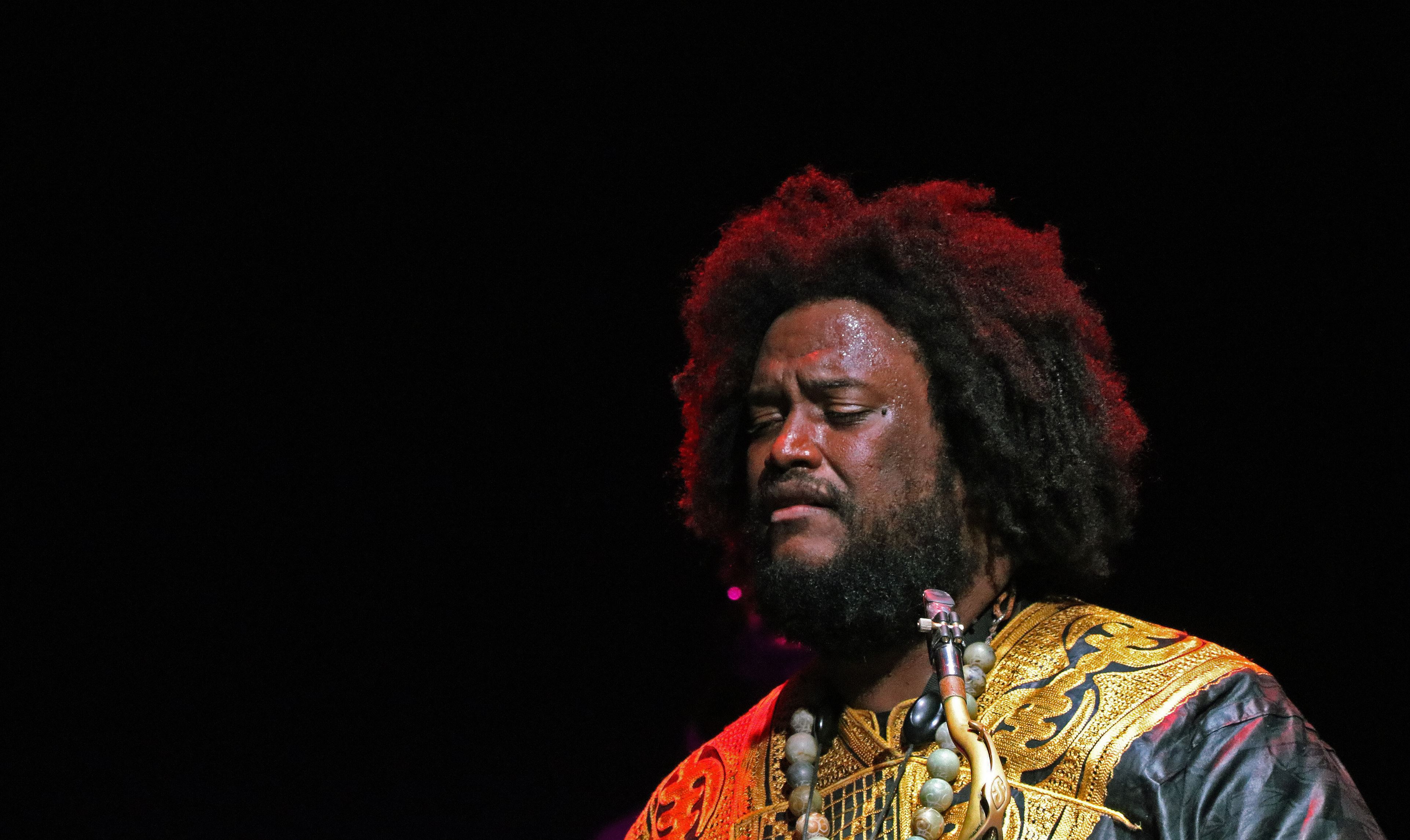At times, it is difficult to tell whether one is experiencing total ego death in a mist of west coast jazz or simply listening to Kamasi Washington.
Washington, age 40, standing stoically behind his weapon (the tenor saxophone), revealed his live experience at the Beacon Theatre should be taken no differently.
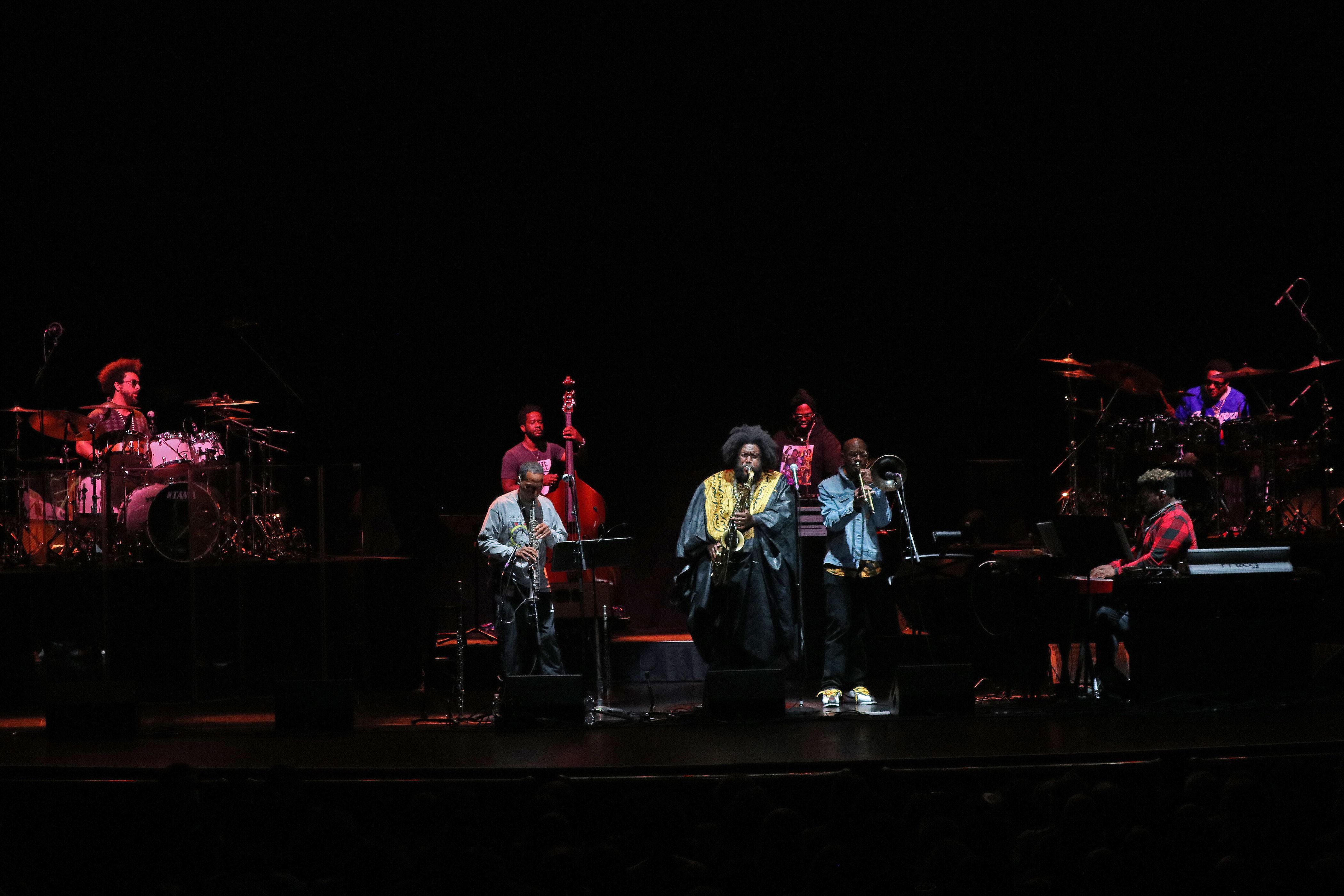
The full band is a downsize from Washington’s occasional orchestra/choir backing.
Photo courtesy of Julian Rigg
Perhaps best known for some of his conscientiously devised collaborations, such as his work on Kendrick Lamar’s magnum opus, “To Pimp a Butterfly,” Washington took a large, yet elegant, hands-off approach to his appearance at the New York City institution.
In a time of what seems to be a musically ubiquitous manner of playing a show down to a precise note, Washington’s callback to the improvisational greats of jazz was a welcomed gulp of fresh air.
After the release of his 2017 masterpiece, “Harmony of Difference,” the Los Angeles (L.A.) native could be seen frequently touring with a full orchestra and choir that made Washington seem like a mere speck in a boundless sea of strings. Despite a downsized band for his Beacon Theatre set, Washington miraculously emulated a sound that illustrated a legion of musicians behind him.
“Downsized” for Washington is an understatement, of course.
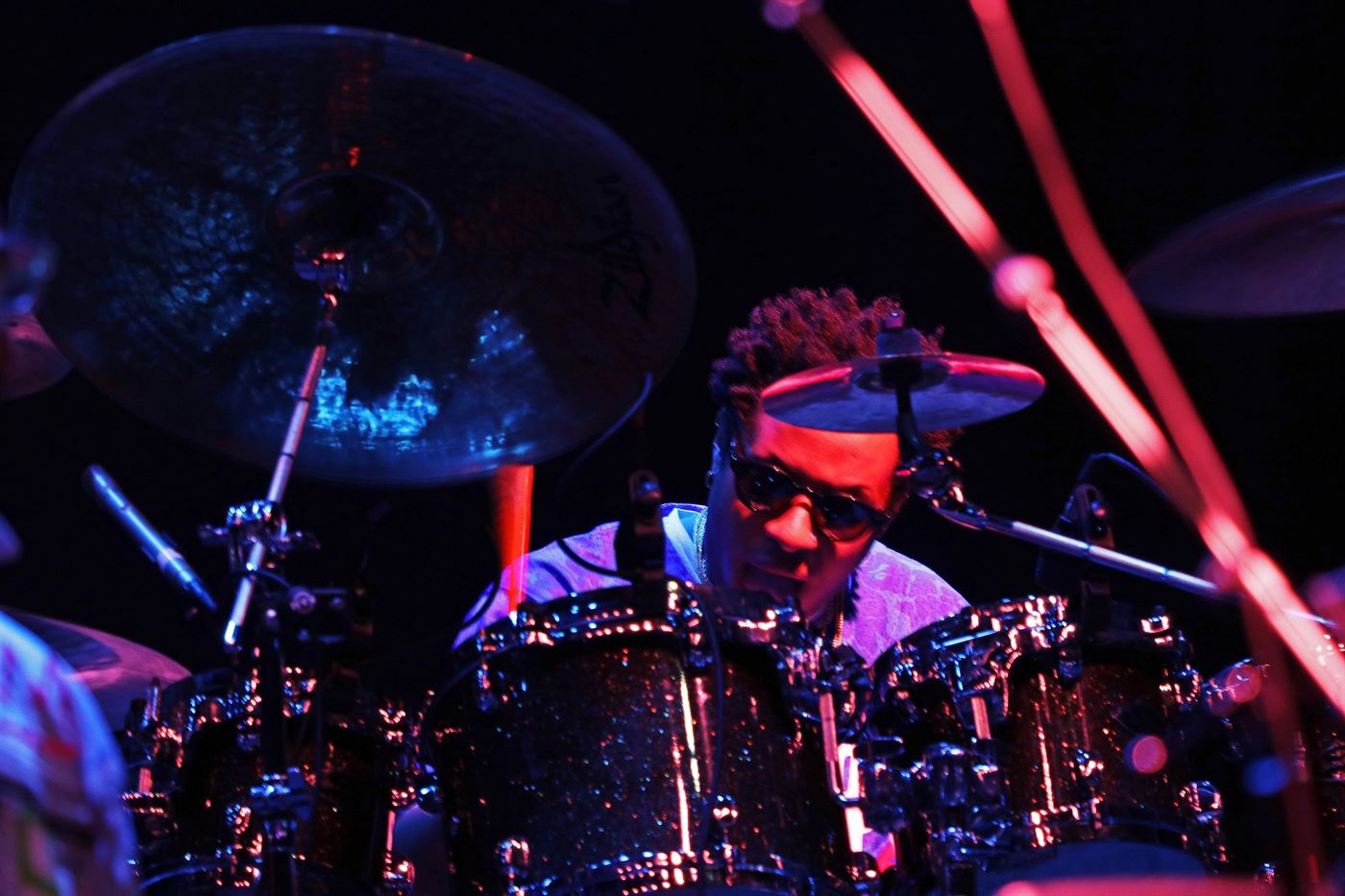
Ronald Bruner Jr., one of Washington’s drummers, is the brother of bassist Thundercat.
Photo courtesy of Julian Rigg
Washington was backed by not one, but two drummers: Tony Austin and Ronald Bruner Jr. The two seasoned percussionists provided a thunderous canvas for bassist Ben Williams, a virtuoso who seemed to be a guardian of rhythm against the upper range of frequencies.
Washington was also joined by Brandon Coleman and Patrice Quinn on keys and vocals, respectively. The two danced sonically behind trombonist Ryan Porter and flutist Ricky Washington, Kamasi Washington’s father.
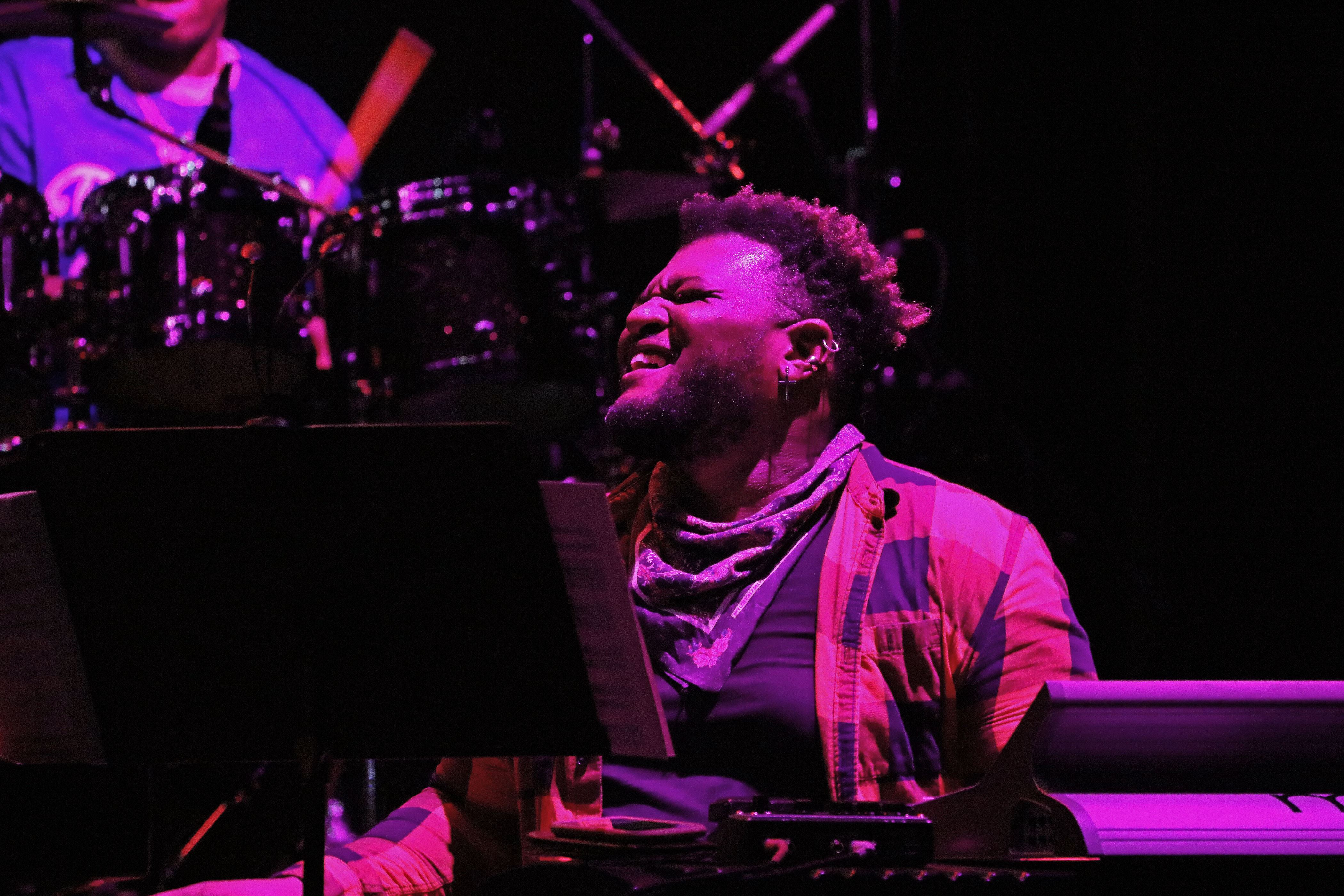
Keyboardist Brandon Coleman, who is self-taught and has been touring with Washington for several years, takes a solo.
Photo courtesy of Julian Rigg
Of course, a meal so perfect must have dessert. In this case, that dessert was legendary DJ and producer, DJ Battlecat, a south-central L.A. native who has worked with the likes of Ice Cube and the late Tupac.
In a nod to the umbrella the term “jazz” covers, Chicago-based R&B singer KeiyaA gave her blessings to the Beacon Theatre in the form of an opening set for Washington. As if playing in a Greenwich Village basement with a single overhead lightbulb, KeiyaA presented concertgoers with a gentle reminder that they are transcending the dimensions where music is not solely listened to but rather felt.
This sentiment was visibly carried into Washington’s appearance onstage as the well-over 6-foot man, protected head-to-toe in black and gold cosmic robes, made his way to the center microphone. Suddenly, the listener was no longer in the Upper West Side, but on a different plane of existence somewhere in between good and evil.
Through anecdotes of his decades-long musical journey and a curated quest through Washington’s discography, including songs off his 2018 album, “Heaven and Earth,” Washington’s respect and patience of the musical process humbly presented itself to the listener.
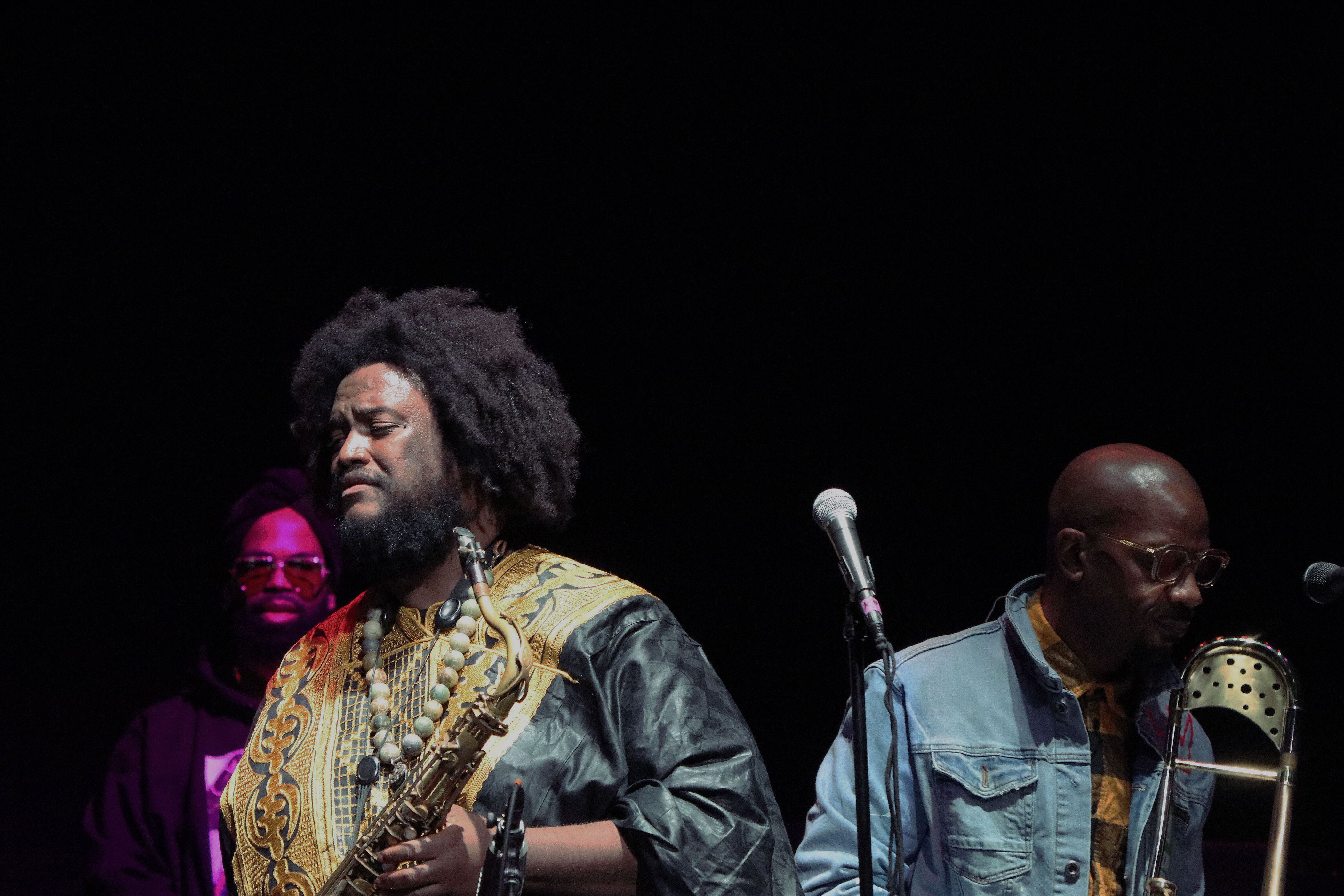
Washington and trombonist Ryan Porter between solos with DJ Battlecat in the background.
Photo courtesy of Julian Rigg
After an operatic version of Metallica’s “My Friend of Misery” and his own critically-acclaimed piece “Truth,” Washington led his audience to his final destination: “Fist of Fury” off of “Heaven and Earth.” With rhythmic hits that would have made a perfect accompaniment to the score of a space opera, “Fist of Fury” was the grandiosity that was needed to bring his journey to a close.
When given the recognition, Washington is a man that can find the light at the end of the tunnel with his eyes closed. His improvisation over complex harmonies and chord changes seem to be an allegory of life, one that shows us it is not a planned-out path, but rather one we find ourselves scuffling and wrestling with as we go.
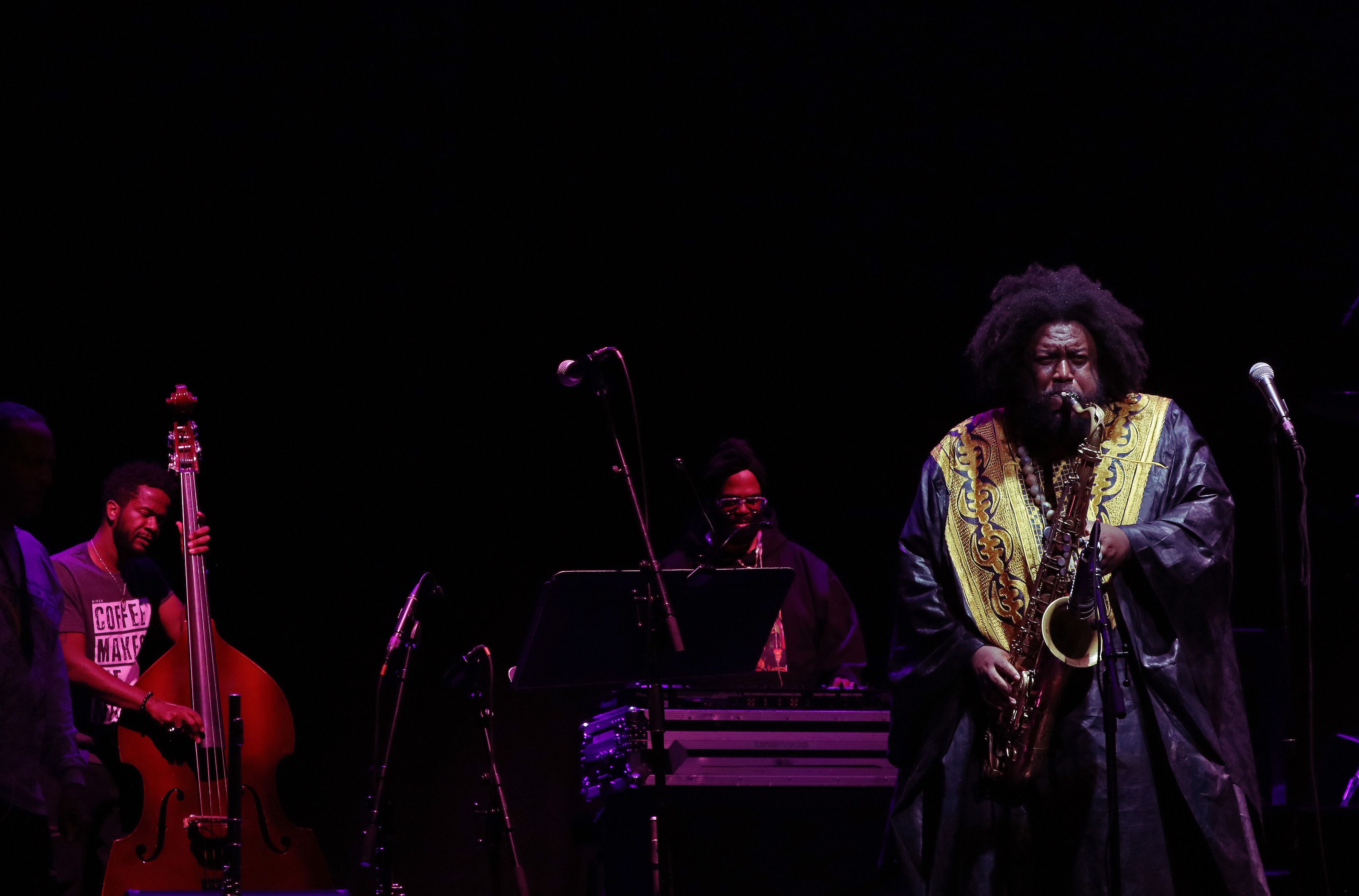
Washington takes a solo over his introduction to his Beacon Theatre set.
Photo courtesy of Julian Rigg
For Washington, the expedition continues. In November, he will be playing the Desert Daze festival in California, with a show next year in Rio de Janeiro, Brazil.
With a humble “thank you,” he left the stage with his spirit trailing right behind him, a posse of still jazz-hungry kids ready to take on the after-show.

